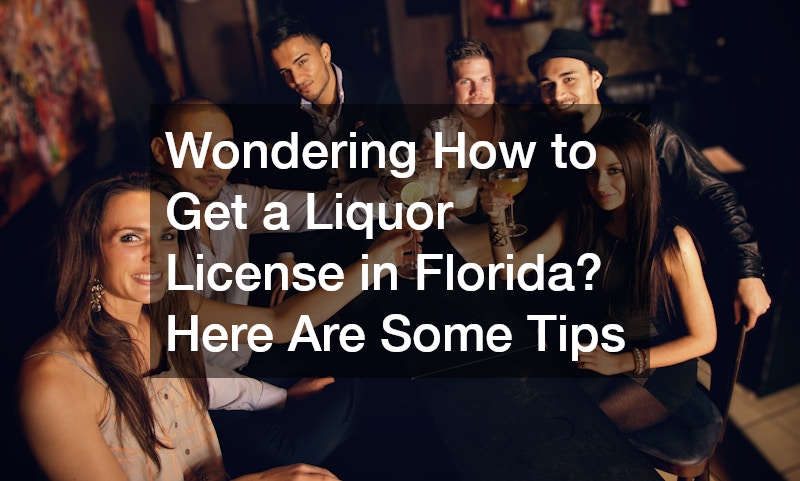Acquiring a liquor license in Florida can be a complex process, but understanding the procedure and requirements can help you navigate it more smoothly. In this article, we will explore some frequently asked questions and provide tips on how to get a liquor license in Florida.
What Are the Different Types of Liquor Licenses in Florida?
1. Quota Licenses
In Florida, quota licenses are a type of beverage license that is limited in number based on population. This means the state issues a finite number of these licenses per county, influencing their availability and cost.
Due to their scarcity, acquiring a quota license can sometimes involve purchasing it from an existing license holder.
The prices for quota licenses can vary significantly, often reaching into the hundreds of thousands of dollars. The limited availability also means a higher demand, especially in populous or high-tourism areas. For many businesses, this initial investment and complexity can be challenging but essential for serving a wide variety of alcoholic beverages.
Prospective buyers can participate in a statewide lottery for newly available licenses. This lottery system, however, does not guarantee access each year. Understanding the intricacies of quota licenses is crucial for owners considering long-term operations involving alcohol sales.
2. Special Licenses
Special licenses are available for unique situations where traditional licenses do not fit the operational needs. Examples include licenses for catering businesses that provide alcohol at private events or for non-profit organizations hosting fundraising activities. These licenses tend to be more flexible and tailored to specific events.
For businesses engaged in catering, a special license can be invaluable, offering the ability to serve alcohol at various locations without the need for multiple quota licenses. These licenses often have specific criteria and limitations, such as the scope of events and types of alcohol that can be served. Understanding these stipulations allows businesses to operate within legal boundaries while meeting customer demands.
Additionally, some special licenses may be granted for specific durations, aligning with the period of planned events. This temporary nature makes them ideal for short-term needs without long-term commitments. Keeping abreast of the options available can provide flexibility and adaptability for business operations.
3. Temporary Licenses
Temporary licenses are designed for short-term events where alcohol sales are a component but the primary focus is not on a permanent establishment. These licenses are ideal for businesses or individuals aiming to host events that last for a few days or weeks. They offer a streamlined process compared to permanent licenses, though with stringent conditions.
Applicants for temporary licenses must demonstrate the event’s nature, duration, and compliance with local laws. This involves ensuring security measures and age restrictions are in place to prevent underage drinking. The fact that temporary licenses are relatively easier to obtain makes them a popular choice for festivals and other limited-time events.
Businesses should be aware that these licenses must still adhere to state and local regulations. Violations can lead to fines or loss of license, impacting future opportunities. Hence, it’s crucial for applicants to thoroughly understand the responsibilities involved with temporary licenses.
What Are the Steps to Obtain a Liquor License in Florida?
1. Application Process
The application process for a liquor license in Florida starts by submitting the necessary forms to the Florida Division of Alcoholic Beverages and Tobacco. This includes completing detailed applications that outline the nature of the business and proposed alcohol sales. Applicants need to verify ownership and explain how alcohol sales fit into their business operations.
Notably, applications require detailed information about the premises where the alcohol will be sold, which ensures proper zoning compliance. Also, potential licensees must disclose any past violations related to alcohol sales they have been involved in. The rigorous nature of this process highlights the importance of ensuring all information is accurate and complete from the outset.
This process can be time-consuming, requiring patience and precision. It may also necessitate legal consultation to navigate complex legal standards and requirements. For many, enlisting professional help can smooth the journey toward securing a license, saving time and reducing the likelihood of errors.
2. Fees and Requirements
Acquiring a liquor license involves various fees, which differ based on the type of license and its intended use. These fees are generally intended to cover the administrative costs of processing applications and conducting necessary inspections. Understanding these costs upfront can assist businesses in planning their budgets effectively.
Eligibility requirements can vary but generally include proving that applicants are of sound moral character, have no disqualifying criminal records, and are financially responsible. These criteria ensure that businesses prioritizing public safety and responsibility get the chance to operate. Community impact is also considered, which aids in maintaining neighborhood standards and safety.
The combination of fees and requirements serves as a filtering mechanism, ensuring only qualified entities receive licenses. This vetting process helps maintain Florida’s standards for alcohol sales, which are critical for ensuring public welfare and compliance with state laws. As a result, understanding and meeting these requirements are essential steps in the application process.
3. Approval and Inspections
After submitting an application, businesses will undergo a thorough review and must pass several inspections before receiving their liquor license. These inspections verify compliance with health and safety standards as well as legal requirements pertaining to alcohol sales. Typically, the approval process can take several weeks to months, depending on the complexity of the application.
Inspectors will evaluate the physical premises for adherence to fire safety, sanitation, and security protocols. This is done to ensure a safe environment for the consumption of alcoholic beverages. During this stage, any identified issues must be resolved before a license is granted.
While obtaining a liquor license in Florida requires careful attention to detail and adherence to state regulations, being informed and prepared can make the process more manageable. Armed with these tips and insights, you’ll be better equipped to start your journey towards legally serving alcohol in Florida. Following this structured path enhances the chances of successful approval, allowing for smooth, compliant business operations.
.


